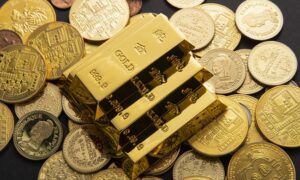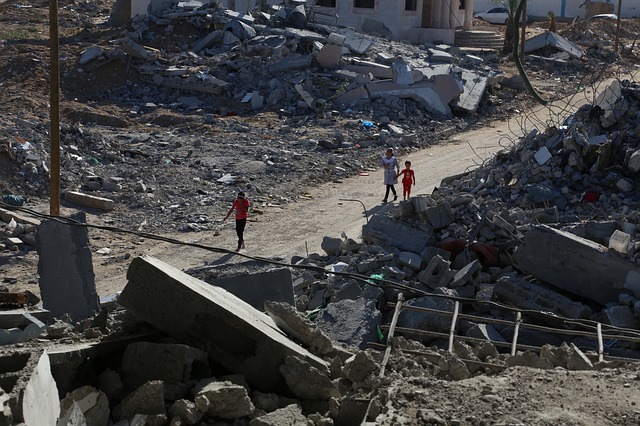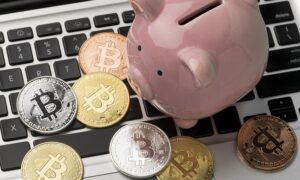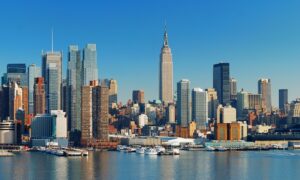Doing Business in the Middle East: The Lebanese economy is at stake if the Syrian conflict continues
Lebanon: a glass half empty… or half full?
As soon as you step foot in Lebanon you feel immediately at home. Smiling faces and welcoming words make any visitor more curious to explore this rather special small country.
However, behind this warm welcome is a deeply ingrained sense of anxiety about the current situation and the uncertain future of this country, as expressed by many encountered by the Middle East Business team on a recent visit to Beirut.
The full half of the glass …
Lebanon and the Millennium development goals
In 2000, the international community established the eight Millennium Development Goals, also known as MDGs. They are a set of aims that range from beating extreme poverty to stopping the spread of HIV and AIDS and providing universal primary education by 2015. Lebanon has achieved at least six of the eight MDG targets, mainly in health, primary education and gender equality in education – those still to achieve are poverty reduction and environmental sustainability.
Tourism and Oil & Gas Sectors
Lebanon has a wealth of world-renowned tourist sites, such as Jeita Grotto, Anjar, Beiddin and Belback to name but a few. Tourism is an important part of the country’s income, but Lebanon is also rich in other natural resources, as yet not fully exploited, such as gas and oil. Our team noticed many issues with power cuts during the working day, which indicates underlying issues in electricity production.
The size of Lebanon’s share of the East Mediterranean natural gas is yet to be determined with an acceptable degree of precision. The offshore area of economic jurisdiction is nearly 23,000 square kilometers, more than twice the country’s size; preliminary exploratory seismic surveys were carried out over about half this area, and yielded an estimate of natural gas deposits amounting to more than 25 trillion cubic feet. This prompted expectations that Lebanon’s exploitable natural gas reserves may in fact be in multiple deposits.
Further estimates show that Lebanon’s natural gas deposits could turn out to be much larger than so far revealed; the Levant Basin, which spans the offshore zones of four eastern Mediterranean countries, contains some 122 trillion cubic feet – that is more than ten times Lebanon’s confirmed share.
The potential economic impact of the oil and gas sector in Lebanon will indisputably go beyond the direct operational and capital investment impacts, and is expected to contribute to domestic output.
Lebanese Banking Sector
Against all odds, the banking sector is still functioning, as assured by a recent report published by Bank Audi, saying that continued banking activity resilience during tough operating conditions. In 2013, customer deposits at operating banks grew by a significant US$ 11.2 billion, against US$ 9.3 billion over the previous year, and loans to the private sector maintained their previous growth of US$ 3.9 billion. Bank operating conditions reported a slight improvement in local currency interest spreads yet from its record low of the previous year, while foreign currency spreads have been stable within the context of fierce interest rate competition among operating banks. Within an environment of low spreads and mild fee income generation, Lebanese banks’ net profits are believed to have stagnated in full-year 2013 at close to their level of 2012.
The empty half of the glass
The Lebanese economy is suffocated by the Syrian crisis
Lebanon conceded the economic blow from the nearby instability and intramural excesses that followed. Growth, undermined since the beginning of the conflict in Syria, may not exceed 2% this year against 9% in 2009 according to the International Monetary Fund, while the fiscal deficit widened by 60% to the end of September 2013 to reach US$ 3.3 billion, one of the worst blunders for several years. This will probably have a negative impact on the debt situation, which now rises to over US$ 62 billion – one of the highest in the world in terms of ratio to GDP.
And according to the same report published by Bank Audi (find it uploaded on Middle East Business Online Channels), a continuing economic slowdown is being reported within the context of the adverse spillover effects of the Syrian conflict on investment, tourism and foreign trade. Real GDP has displayed a low – though positive – growth for the third consecutive year, estimated at between 1.5% and 2.5% by the IMF and the Central Bank of Lebanon, amidst continuing regional tensions and lingering domestic uncertainties.
Public Services at breaking point
The slowdown in economic activity is quite noticeable and having an increase on the demand for public services. As an example, the Lebanese Ministry of Education opened its public schools to Syrian refugees, while already having 40,000 refugees by 2012, at an estimated cot of US$ 29 million. These budgetary costs will continue to rise: by 2014, the number of refugees enrolled in schools will reach between 140 000 to 170 000, according to the World Bank: this figure represents 57% of current public school students in Lebanon. This same pressure is being applied onto universities and public hospitals.
According to the World Banks recent report, such rapid population expansion will also have negative consequences on society. The present number of refugees is around the one million mark and could reach 1.6 million later this year. If the Syrian conflict continues, more than 170,000 Lebanese, or an extra 5% of the population, will be left in poverty in 2014.
The arrival of Syrian refugees increases the available workforce by between 30 to 50%, affecting women, youth and unqualified workers. In the less qualified workers category, a 14% reduction of wages has been experienced, according to a report by the Economic and Social Commission for Western Asia of the United Nations (ESCWA). According to their report, 71% of Syrian refugees live below the poverty line, while 75% of them have no qualifications.
Such an increase in job seekers in a struggling economic situation has a clear impact on the labour market. Unemployment and informal work could increase total employment by up to 10%. According to the World Bank, an amount of US$ 166- 242 million is needed to stabilise the situation by applying a full range of direct intervention programs for the labour market to improve livelihoods and income prospects in the short term. Hanan Saab, a prominent Lebanese businesswoman and the President of the Lebanese League of Business Women, told Middle East Business, that Syrian refugees and Lebanese are competing for the same jobs, with Syrians accepting much lower wages than Lebanese. Lebanon is struggling under this burden of a 30% increase in population due to the Syrian refugees, which places immense pressure upon the local infrastructure, concluded Mrs Saab.
On another level, tourist income (estimated at some $ 7 billion a year) was affected by the decline in the number of visitors.
During Middle East Business recent visit, we spoke to those working in the tourist sector and heard that numbers were already down by 8% during the first months the year.
Niazi Shawish , a Lebanese citizen who works for an international car rental company in Beirut, expressed his concerns about the current situation and the low number of tourists coming to Lebanon due to the unstable political situation in the region. A similar sentiment was expressed by Antoine Kury, a taxi driver, who said that things have really worsened since 2009 – his work today is nothing compared to what it was then. Tourists from Gulf countries and Saudi Arabia are rarely seen on the streets of Beirut these days after being the most regular visitors to Lebanon in the past few years.
In another indicator, a consumer Confidence Index issued by Byblos Bank, in cooperation with the American University of Beirut (AUB), mentioned that consumer confidence declined during 2013. As Nassif Ghobril, the Chief Economist at Bayblos Banking Group, declared that many factors drove them to this conclusion, such as continued domestic political instability, repeated security breaches, the effect of the Syrian conflict, in addition to the high cost of living and poor day-to-day services.
Lebanon’s long-term Oil and Gas investment
As the extraction of oil and gas from its territories starts to materialise, as mentioned by Gebran Bassil, Lebanese Minister of Energy and Water during the announcement of Lebanon’s first round of offshore license auctions, the oil and gas resources in Lebanon represent both an opportunity and a responsibility: an opportunity for the economic and social development of the nation, and a responsibility to protect the rights of future generations.
This opportunity can alter Lebanons destiny. Based upon the current gas and oil prices and on the basis of Lebanon’s 96 trillion cubic feet of gas reserves and 865 million barrels of oil reserves, net proceeds to the government are estimated at more than US$ 600 billion, the equivalent of ten times the size of its public debt. Such figures highlight the importance of containing and minimising the cost of delay in an economy that enjoys a huge structural potential (Bank Audi Report – see our online edition for this report).
If Lebanon can manage the challenge of coping with this ‘gift’, the income from the extraction of oil and gas can bring back Lebanon to its former vital role as a developed country, and can create a sustainable economy with expanding output levels/growth and increased per capita income.


























